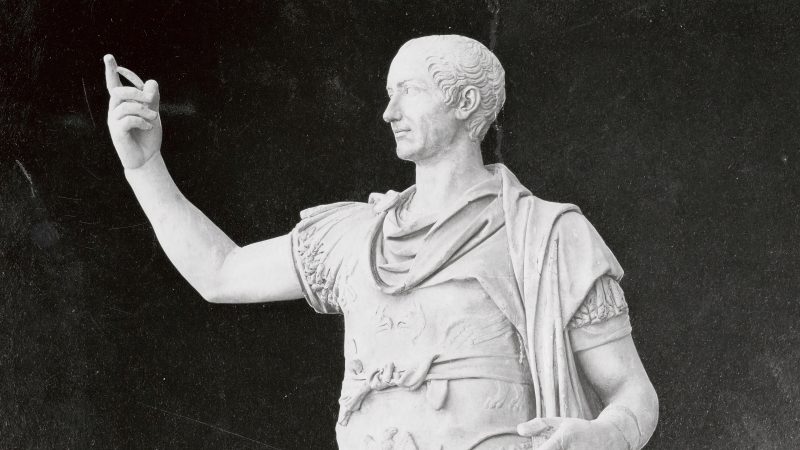I was conflicted about whether to post this here or in Shit Reactionaries Say because this is a somewhat schizophrenic piece.
On the one hand it accurately describes the dysfunctional, corrupt oligarchy that Rome had become by the time that Julius Caesar came onto the scene, as well as giving a rough outline of how it got there. In doing so the author juxtaposes that historical reality with the idealized narrative which this BBC production is trying to portray of a well functioning democratic republic ruined by one nefarious populist.
The piece thus correctly exposes the propaganda and the historical myth-making surrounding this topic and the obvious parallels which the liberal media is trying to draw between the Roman republic and modern liberal democracies (in particular the US which for a long time has seen itself as a modern Rome).
For those who have not studied Roman history this is worth a read to realize how liberal propagandists employ historical revisionism to justify the present day status quo and demonize any person or party with a “populist” agenda.
On the other hand the author, being a reactionary, halfway through the piece suddenly starts to advocate for Great Man Theory*, not realizing that by doing so he is doing the same but in reverse as the liberals who scapegoat figures like Julius Caesar for developments which were really the result of the contradictions of the system itself (as the piece says: the crisis created Caesar, not vice versa).
Ultimately i decided to post this here because most of the piece is actually fairly informative, while the part where it advocates for the idolizing of “great men” is an illustration of the kind of nonsense that results when you do not understand or when you reject dialectical and historical materialism.
All that being said, if you are interested in reading about this period of history from a leftist and materialist perspective i would strongly suggest you read Michael Parenti’s “The Assassination of Julius Caesar” instead.
*[It has been pointed out to me that this particular passage is more ambiguous than i initially thought, and not everyone interprets it as actually advocating for GMT]



Hm…yes, it’s not as clear as i thought on first reading. The principal problematic passage in my opinion is this:
It is not explicitly stated but i think we can infer that the author does not have a very positive view of “academia these days”. Thus if modern academia rejects positive Great Man Theory then one could assume that the implication is that we should do the opposite.
They also use a lot of positive words when describing the “Great Man”: “dynamic individuals”, “will and vitality of the people”… Again this is not explicit advocacy in favor but it does sound very much like the kind of language that reactionaries use who do idolize the “Great Men” of history (emphasis on “men” as this usually involves support of patriarchal norms as well).
The main reason why i interpreted these passages the way i did is because i am somewhat familiar with the author. If you look at things they have written previously in other articles or social media posts, their reactionary inclinations imo come across more clearly.
For instance, in their previous piece in this series it is made fairly clear that they admire Napoleon. That in itself is not necessarily the issue, but what is worrisome is that in the Caesar piece Napoleon is now lumped together with Washington and Columbus as “great figures” now viewed more negatively by liberal academia.
Taken together these two pieces would seem to imply that the author views these figures positively, as reactionaries typically tend to do. And while a positive view of Napoleon and Caesar could be excused, a positive view of the arch-genociders who form the basis of the US’s national mythology imo cannot.
There are also other issues with the Napoleon piece which to me indicate reactionary views held by the author (i didn’t particularly like the way they talked about the Josephine-Napoleon relationship), but i don’t want to get too far off topic.
As i said, the Caesar piece is not really explicit about the author’s own views, and you are right that if you read just the text of the piece itself without reading between the lines it is not clear which position the author takes, but given the context of other things they have written in the past i assumed what they were trying to imply.
Seriously if Columbus was never born, some other european would have been on a colonial quest to explore the far west Atlantic ocean.